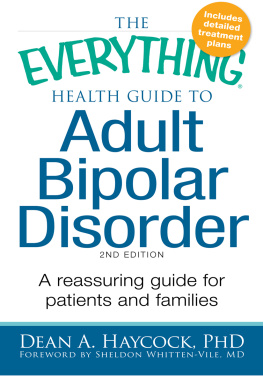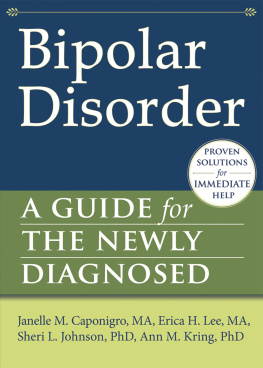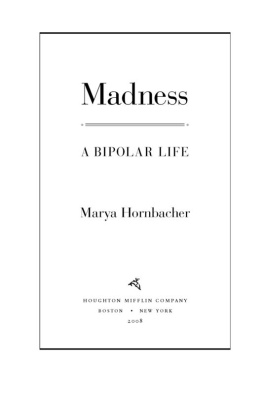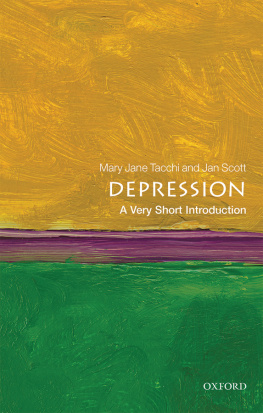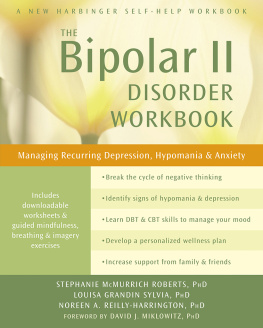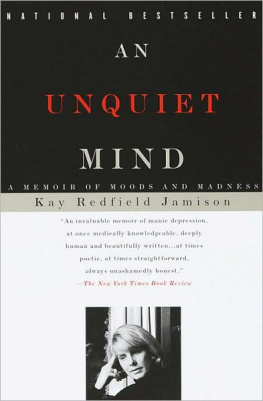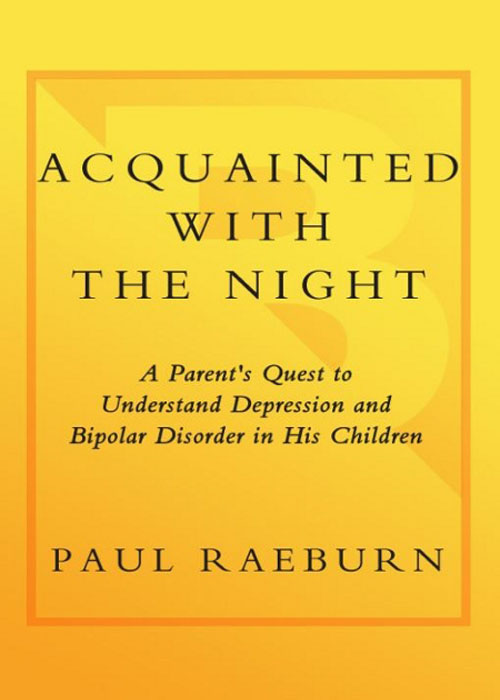
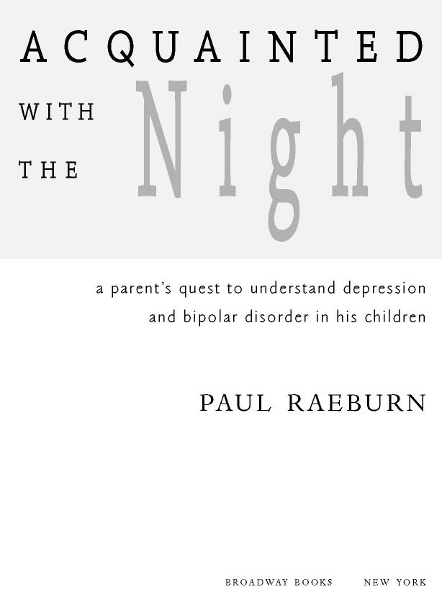
Table of Contents
To Alex and Alicia
I have been one acquainted with the night I have walked out in the rainand back in rain. I have outwalked the furthest city light. I have looked down the saddest city lane.... I have been one acquainted with the night.
ROBERT FROST
PROLOGUE
It is an unusually chilly night in April. I am driving fast on a dark, nearly deserted highway, in an unfamiliar place, struggling to keep up with an ambulance in the headlights in front of me. My hands are steady enough if I grip the wheel hard. The ambulance is headed toward a psychiatric hospital forty miles from my home. My son, Alex, eleven years old, is inside, strapped to a gurney and bound at the hands and feet.
This morning, in school, Alex was told that the scheduled fifth-grade art lesson had been canceled. Something detonated inside him. He became enraged. He screamed at his teacher, and ran from the classroom. She called out to him, demanding that he return, but he kept running. He fled blindly down the hallway, smashing the glass face of a large wall clock with his fist as he passed it. He ran past the principals office, out the schools front doors, and onto the playground. He did not seem to know what had propelled him outside, and he didnt know where to go next, but he kept moving. The principal, alerted by Alexs teacher and the sound of breaking glass, ran after him, and ordered him back inside. Alex ignored the principal and kept running, across a grassy soccer field and toward a small, pebbly creek that bordered the school grounds. The principal followed and pleaded with Alex to come back, but Alex kept moving. Worried that Alex might hurt himself or disappear into the neighborhood beyond the creek, the principal ran back to his office and called my wife, Liz, who worked nearby. The only alternative, the principal said, was to call the police.
Liz left work and drove to the school. When she arrived, two policemen were there, trying to coax Alex into a squad car. He wouldnt let them get near him. He stood on the soccer field, frozen, waiting for their next move. When they tried to corner him, he fled. A second police car arrived. Three policemen ran after Alex through backyards and between houses, hopping over fences, scrambling to surround him. Alex grabbed a fallen tree limb and swung it at the officers as they approached. They briefly retreated, but he couldnt keep them all away. Moments later, they got close enough to grab him. Alex was screaming, punching, and kicking. Two of the policemen wrestled him to the ground, held him, muscled him into the squad car, and locked the doors. As they drove away, he banged his head and kicked his feet against the inside of the car. Liz could hear his muted cries for help.
The police took Alex to the emergency room at the local hospital around noon. The hospital did not have a psychiatric unit, so the staff began arranging for a transfer to a childrens psychiatric hospital. Liz called me. I was at my office in Manhattan, where I worked as an editor at BusinessWeek magazine. I left the office as soon as I got her call. It was an agonizing two-hour trip on the commuter train from the office to my home, in Ridgewood, a suburb in northern New Jersey. I had no cell phone, no way of keeping in touch, no way of knowing what might be happening. I had only scattered details; Alex had been subdued by the police, locked inside a police car, and taken to the hospital. Did that mean he was under arrest? What had he done? I wished I had stayed on the phone longer before running for the train.
When I got to the emergency room, Alex was lying quietly in a hospital bed, barely able to raise his head. He had fallen asleep shortly after he arrived. He was drained, empty of all the anger, empty of any feeling at all. He looked up at me drowsily. I asked him why he had run out of school. He didnt know. He said he couldnt remember any of the mornings events. He was as confused about what was going on as the rest of us. It seemed the crisis was past. The eleven-year-old who had been strong enough to fight off three policemen a few hours earlier was now a sleepy little boy, worried about what might be coming next.
The doctors in the emergency room said Alex belonged in the county psychiatric hospital. All I knew about the county hospital was that it had recently been the subject of newspaper articles reporting an unusually high incidence of suicide among its adolescent patients. Liz and I scrambled to find an alternative. It took hours to find one and to arrange an ambulance for the trip. Night had fallen by the time the ambulance arrived. I watched as Alex, now calm and still sleepy, was picked up and laid on the gurney. The ambulance driver and his partner chatted pleasantly with Alex as they cinched leather straps around his wrists and ankles. One was a competitive roller skater, who, as he was sliding the gurney into the back of the ambulance, told Alex that he skated not on in-line skates, like the ones Alex had, but on old-fashioned four-wheel skates, or quads. Then the skater climbed in and closed the door.
In the car now, following that ambulance, I am trying to focus on my driving, but Im overwhelmed by doubt and confusion. Why is Alex being treated like a prisoner? I should be taking him home, not driving through the dark to some rural New Jersey town Ive never heard of, to a hospital Ive never seen, where I am supposed to leave him in the custody of strangers. Boonton Township, the community is called. I begin to worry about money. I work long hours, and I write books and magazine articles on the side, because, despite the long hours, my salary doesnt cover the familys expenses. I havent been able to set aside money for emergencies, and I cant afford medical bills. When I remember Alex, strapped inside the ambulance in front of me, I am ashamed that Im thinking about myself. I wonder how his small frame held all that anger. I dont know what to do. I feel frightened and alone as I drive on in blackness broken only by the occasional flash of a passing cars headlights.
Alex is wheeled into the admissions area, where I am handed a stack of forms to fill out. The ambulance attendants chat with Alex as they remove his belt and shoelaces. For a moment I dont understand, and then I do. They think Alex might kill himself. They unstrap him, and he gets up to walk with Liz and me, and someone from the hospital, to the place where he will be staying. We walk down a long hallway, with tile floors and pale yellow cinder-block walls. The woman from the hospital unlocks a door, and we enter a large recreation room. Two dozen children, most of them older than Alex, are playing, relaxing, and joking. Its noisy, but no noisier than an art or physical education class at Alexs school. Who are these children? They look normal. A few seem a little rambunctious, but I wouldnt know they were mentally ill. If that is what they are. One girl sits alone in a chair. I wonder why she is here. I look at other children and wonder the same thing. They seem normal enough to me, but what had I expected? Id never seen a kid with mental illness. This must be what they look like. Just like other kids. I suppose I had been hoping they would look sick, or different somehow from Alex, so I would know he was not one of them.
After a few minutes, a woman from the hospital tells Liz and me it is time to say good night. I dont see how I can leave. Thats my son, and he doesnt know anyone here. The woman is understanding, but firm. Alex is taking this better than I am. He hugs me and hugs his mother and starts to look around the room, trying to find an opportunity to join in. Liz and I walk out the door. I look back at Alex through the small cross-hatched window of reinforced glass in the door. I see him. A hospital staffer puts her hands on Alexs shoulders and walks him out of view. Standing in the empty hallway, I hear the cold, metallic clang of a bolt as the door is locked. It echoes from the tile floor and cinder-block walls. It is the most forlorn sound I have ever heard. Liz and I walk separately, back toward the hospital entrance, not speaking. Im crying, and Im embarrassed. I dont look at her. Alex is alone on the other side of that locked door, without me, and I do not have a key.
Next page

